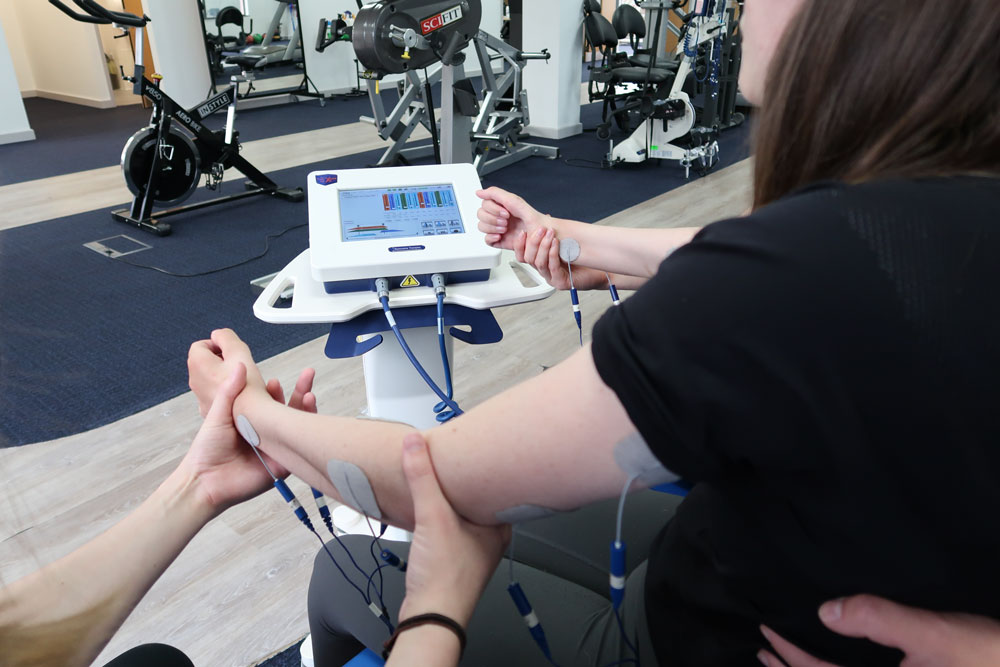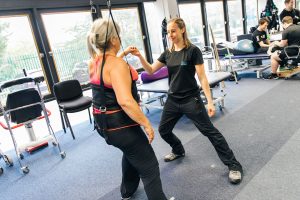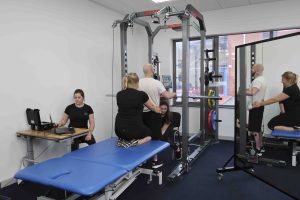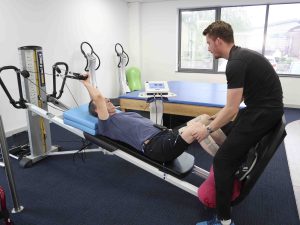In the realm of neurological recovery, remarkable stories of individuals defying prognoses and achieving incredible milestones capture our attention and give us hope.
These narratives often highlight the potential for extraordinary healing and the human spirit’s resilience. However, it is crucial to examine whether these stories truly defy prognosis or if they primarily underscore the significance of access to appropriate neurorehabilitation. Here we will delve into this thought-provoking question and shed light on the crucial role proper care plays in enabling neurological recovery.
The Complex Nature of Neurological Prognosis
Neurological conditions like spinal cord injuries present unique and complex challenges. Prognosis in these cases involves predicting the potential outcomes and recovery trajectory based on various factors, including the type and severity of the injury, the individual’s overall health and the available treatment options. While essential for setting realistic expectations, prognostic assessments are not definitive and can be subject to change due to several factors, including advancements in medical care and neurorehabilitation.
The Role of Neurorehabilitation
Neurorehabilitation encompasses a multidisciplinary approach that aims to enhance the functional abilities and quality of life of individuals with neurological conditions. It combines various therapeutic interventions, including physiotherapy, occupational therapy and psychological support. The goal is to optimise the nervous system’s potential for rewiring and creating new neural pathways, facilitating functional recovery.
Access to Appropriate Neurorehabilitation
One of the most crucial factors determining an individual’s recovery trajectory is their access to appropriate neurorehabilitation services. Unfortunately, not all individuals have equal access to these essential services due to various barriers, including financial constraints, geographical limitations or a lack of awareness about available resources. Consequently, many people with spinal cord injuries may not receive the level of care necessary to maximise their potential for recovery.
Empowering Stories: Defying Prognosis or Access to Care?
When we come across stories of individuals who have made remarkable recoveries from spinal cord injuries, it is essential to recognise the role that access to appropriate neurorehabilitation plays in their journey. While some may interpret these stories as defying prognosis, the real story lies in these individuals being fortunate enough to receive the comprehensive care they needed.
These stories highlight the transformative power of tailored therapies, expert guidance and a supportive environment. People featured in these narratives likely had access to highly skilled healthcare professionals, cutting-edge treatment techniques and well-equipped rehabilitation facilities. This level of care, combined with an individual’s determination and perseverance, contributes significantly to their remarkable recoveries.
Importance of Raising Awareness and Improving Accessibility
To truly understand the intricacies of neurological recovery, we must advocate for improved accessibility to appropriate neurorehabilitation services for ALL individuals living with a spinal cord injury. Raising awareness about the importance of early intervention, personalised treatment plans and long-term support is vital.
Efforts should be made to bridge the gaps in access to care, whether through government initiatives, public-private partnerships or not-for-profit organisations, as with Neurokinex. By expanding the availability of neurorehabilitation services and ensuring they are affordable and geographically accessible, we can increase the likelihood of more individuals achieving remarkable recoveries.
Improvement for All
While stories of individuals defying prognosis in their neurological recovery from spinal cord injuries, are undoubtedly inspiring, it is important to recognise that they often stem from access to appropriate neurorehabilitation rather than sheer defiance of medical predictions. The human brain and spinal cord possess remarkable potential for healing, but they require the right environment and support to optimise their recovery.
By acknowledging the critical role of neurorehabilitation and striving to improve its accessibility, we can enhance the chances of individuals with spinal cord injuries achieving remarkable recoveries and reclaiming their lives. Let us continue to advocate for better resources, awareness and support to empower those on the path to neurological recovery.
We believe that everyone living with a spinal cord injury should have access to cutting-edge neurological rehabilitation. We call this Right2Rehab.




